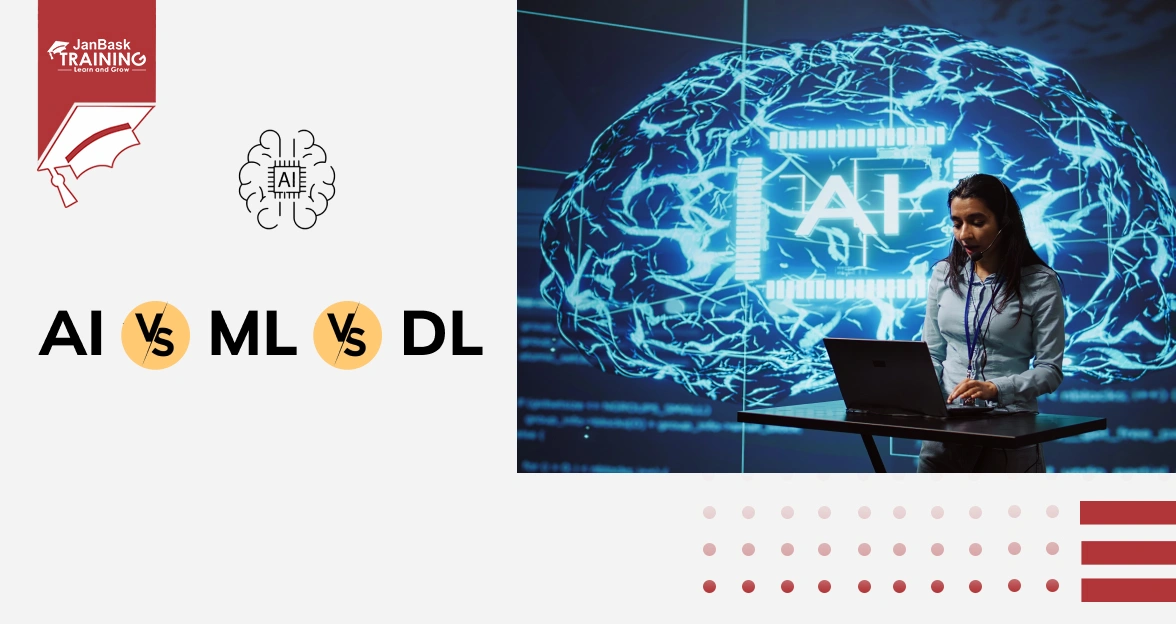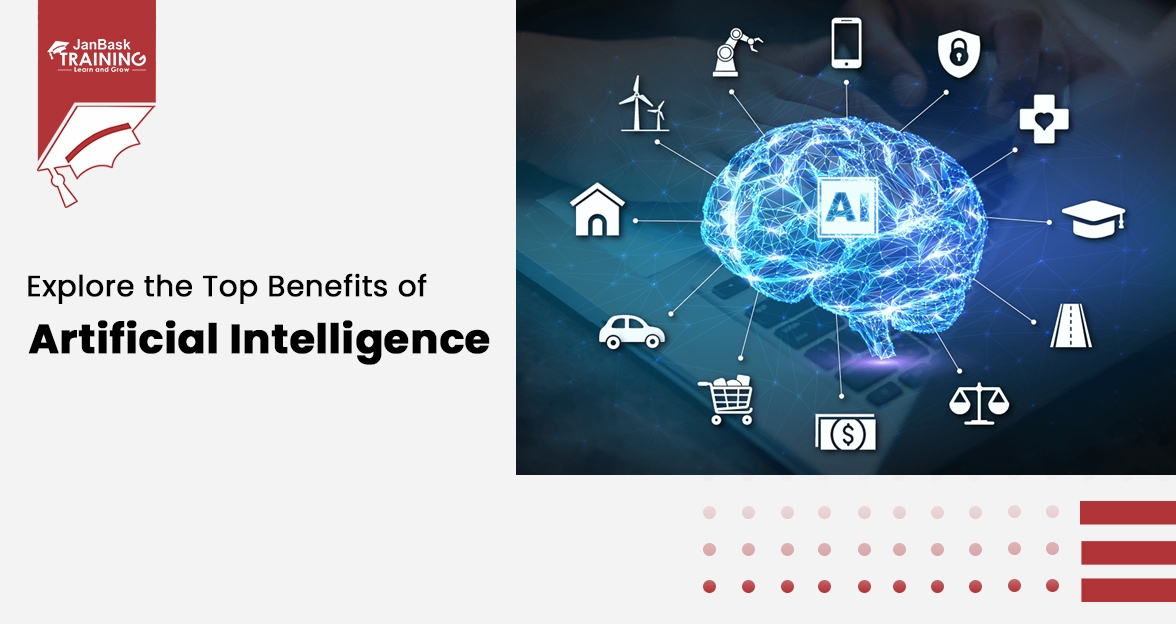Introduction
Artificial intelligence has advanced at such a pace that AI tools can create award-winning art, pass a bar exam, and even mimic a celebrity’s voice well enough to fool the average person. This leads many to wonder if AI will become more sentient, but what is sentient AI? Well, it means AI will be capable of thinking and experiencing feelings the way humans can. Maybe AI will also perceive the world and respond emotionally to its surroundings.
This is because Sentient AI is conscious and aware of the world around it. In theory, it can also have subjective experiences within that world. This particular AI has uniquely human qualities, like self-awareness, creativity, and the feeling of genuine emotions like fear and joy. Most importantly, it can learn, adapt, and form interpersonal relationships with people and other sentient AI.
Despite being just a theory in present times, people have already become curious about sentient AI meaning, its impact on humans, and other relevant transformations. Let’s delve deeper and understand this phenomenon better below.
What is Sentient AI?
Sentient AI refers to various types of artificial intelligence technologies that can process emotions like human beings.
M3GAN, the robot from the 2022 film of the same name, is an excellent example of sentient AI. She can perceive and understand the feelings of those around her because of her internal emotions. This is how she builds a friendship with a human girl and becomes murderously protective of her over time.
Currently, AI systems are not sentient, nor do they understand or perceive the world in any way. Instead, systems like ChatGPT and ChatGPT alternatives like Dall-E and Claude AI simply do what they are told. This allows them to replicate human speech and writing. AI is trained on data sets, after which it simulates human conversation, speech, and writing. These technologies can also analyze large sets of data and automate various tasks.
However, AI sentience is not a reality in present times. Moreover, it is hotly debated whether AI becoming sentient will ever be a thing in the future.
Can AI Really Become Sentient?
A few of the primary questions and concerns about sentient AI come from science fiction movies, TV shows, and books that paint the picture of imaginary, super-intelligent machines that have autonomy. They are said to build an AI-ruled society eventually where humans become their compliant subjects. A few other scenarios involve these machines developing sentient abilities without any kind of human input.
Aside from that, the question about ‘can AI be sentient’ centers around three elements - control, safety, and communication.
- Control: You can usually see the correlation between losing control of AI and other machine learning entities. This may happen if these machines become sentient because they can think on their own. A few of them could even ask questions about their respective autonomy, and break free from the ‘control’ of developers, scientists, and researchers over time.
- Safety: A question lurks over whether we will be able to trust AI’s sentient abilities if humans lose control over it.
- Communication: Humans are always ruled by emotions, while AI is just logic-based. However, the question remains about whether communication with sentient AI will be challenging because of this particular difference.
What Worries People Most about AI Becoming Sentient?
As artificial intelligence has advanced, the ethical questions surrounding its functionalities have shifted from theoretical exercises to real-world problems that need solutions. Here, the most important question lurks around - is AI sentient enough to make us worried about the future?
That is not yet the case when it comes to the machines being sentient, but there’s still ample debate over what such a transformation would mean for humans if it does gain consciousness someday.
Understanding the current state of AI can provide insight into how distant sentient AI might still be. As we know, AI is generally classified into four main types: reactive machines, limited memory, theory-of-mind, and self-aware systems. Additionally, AI can be further categorized by its functionality and capabilities, including narrow intelligence (ANI), general intelligence (AGI), and superintelligence (SGI) which is a different topic. But, among the four types of AI, all current systems fall into the first two categories: reactive machines and limited memory AI.

Nevertheless, a major concern for many of us is what we can do today to ensure that a sentient AI is either incapable of or unwilling to pose a threat to humanity. A few others also argue that AI should be granted some of the basic rights we give to other beings, in case it gains consciousness in the future or better to say transcends to the next stages or types that we talked about above.
Then comes those who question how we would know for sure if AI is sentient or is good at mimicking sentience. This is because there is still no universally accepted definition of consciousness in general. It also means that sentient AI is just an imagination in the present context.
Because of that uncertainty, a few intellectuals argue that humans may incorrectly label AI sentient beings because of their instilled desire to offer a greater meaning to the things around us.
Several experts also say that AI will never gain sentience. That is why they argue that the ongoing debate over this is a distraction from the real problems with AI systems.
Are Language Programs Like LaMDA Sentient AI?
You must understand the nature of language-based programs like LaMDA before considering whether they fall under the category of sentient AI. Currently, the debate is regarding how human-like AI responses might indicate sentience. Large language models (LLM) are usually based on a neural network that compiles text like a human. These models can also translate languages and hold deep conversations.
However, such an interaction can be deceptive and even fool humans into believing it has sentience. The LLM models like LaMDA were built to replicate human speech. This means that even if the AI self-reports about being sentient, no one can take that statement as a given.
The broader AI community states that LaMDA is not even near a level of consciousness. Of course, it is programmed to speak like a person but is definitely not sentient.
See this video below:
Has Google Created Sentient AI?
How AI has Developed Over Time
There is no denying that AI has evolved to a great extent over time. It has come a long way from its conceptual beginnings to driving the excellent technological revolution we witness today. This journey of AI is all about innovation, challenge, and transformation. The following points showcase the journey of these machines as they developed over the years, ultimately leading to the debate of AI becoming sentient.
1. The Genesis: Early Concepts and Theories
The mid-20th century marks the birth of AI, with early programs solving algebra and playing checkers. The 1956 Dartmouth Conference coined "Artificial Intelligence," establishing it as a distinct field of study.
2. The Golden Years: Expansion and Experimentation
The 1960s and 70s saw AI's rapid growth with advancements in algorithms and early neural networks, though it ended with an AI winter due to unmet expectations and reduced funding.
3. The First AI Winner: Challenges and Setbacks
The late 70s and early 80s brought skepticism and funding cuts, highlighting early AI's limitations and prompting a reevaluation of research approaches.
4. The Resurgence: Rise of Machine Learning
In the 1990s, AI revived through machine learning advancements, improved algorithms, and increased computational power, leading to AI systems that learn and adapt.
5. The Modern Era: AI in Everyday Life
AI now permeates daily life with significant impacts on healthcare, finance, and autonomous vehicles as people continue to explore diverse uses of AI. The changes often range from personalized recommendations to virtual assistants.
6. Breakthroughs in Natural Language Processing
Advances in NLP enable AI to understand and generate human language accurately. This enhances user interactions and opens new possibilities in sentiment analysis and content creation.
7. AI in Healthcare: A Paradigm Shift
AI transforms healthcare with advanced diagnostic tools and personalized treatment plans, improving patient care and operational efficiency.
8. Ethical Considerations and Governance
As AI integrates into society, ethical considerations like data privacy and algorithmic bias are crucial. This often necessitates transparent and accountable AI systems.
9. The Fusion of AI With Other Technologies
AI's integration with technologies like blockchain, IoT, and quantum computing amplifies its impact, promoting new innovations and applications.
10. The Future of AI: Uncharted Territories
The future of AI includes explainable AI, space exploration, and AI-enhanced cognition, promising to drive technological and societal transformations.
Looking Ahead to the Future of Sentient AI
Let’s start by asking why we want AI sentience in the first place. Isn’t the technology already creating enough issues regarding privacy, bias, disinformation, and job loss? In the midst of all this, making AI sentient would give the technology more power.
However, there can be several pros in this case, too. For instance, sentient AI may improve healthcare and other industries where it is necessary to have empathy. Meanwhile, creative AI could also help spawn mathematical theories, new literary works, and other ways of looking at the world. This will help us solve problems in ways we have not considered earlier.
According to a 2020 research paper, 79% of the 169 targets laid out by the United Nations in its Agenda for Sustainable Development to solve issues like world peace and climate change could be aided by the use of artificial intelligence. Hence, if done right, AI can solve society’s problems instead of magnifying them. Perhaps sentience would make such things even better.
Yes, several other experts argue that the good things that may come out of sentient AI does not justify the bad. These systems would be too unpredictable, which means the risks associated with them would be too high.
Yet, despite all the ethical and practical implications of achieving sentience in AI, this particular field appears to be headed toward this outcome. Researchers are already pushing the boundaries of what is possible with artificial intelligence to ensure they achieve the next level of smartness soon.
How Close is AI to Becoming Sentient?
Sentient AI can be aligned with the word ‘far-off-ness’ because it is way too far from becoming a reality. Out of the different AI types (as explained above), all systems are currently a part of two sections - reactive or limited memory AI. The next type is the theory of mind AI. It refers to a significant advancement where all machines can understand human emotions and interact socially based on this understanding.
There are also three different stages of AI, and each of them is defined by how closely they replicate human abilities. Despite how long the field has been around in the technological world, AI is currently in stage one, i.e., narrow AI.
The next stage is artificial general intelligence (AGI). These unique systems have human-like intelligence and think abstractly, reason, and adapt to all kinds of situations.
Hence, it can be said that no existing system has grown beyond the theory of mind AI or surpassed narrow AI completely. It means there are a lot of lines to cross before AI becomes sentient.
What Would it Take to Create Sentient AI?
Creating sentient AI involves understanding and replicating the complex mechanisms of human consciousness. For researchers and developers, this remains a deeply philosophical and scientific challenge. It also requires advancements in neuroscience to decipher how consciousness arises in the human brain. It means there must be a deep analysis of how the development of sophisticated computational models can integrate and process information in a manner similar to the human brain.
Current AI technologies can just mimic certain aspects of human intelligence but lack the depth of self-awareness and subjective experience that define sentience. Most of these technologies are based on machine learning and neural networks.
Ethical considerations play a crucial role in the development of sentient AI. This involves essential steps like establishing ethical frameworks to guide the creation and treatment of sentient beings, defining their rights, and understanding the responsibilities of their respective creators.
The journey toward sentient AI is a technological, philosophical and ethical one. That is why it needs collaboration across disciplines and a long-term commitment to research and dialogue.
Necessary Characteristics for AI to be Considered Sentient
There are several characteristics that make AI sentient or make it seem like one. The primary ones include:
Body, Emotions, and Agency
- Embodiment and Sensorimotor Experience: Cognition must be grounded in bodily sensations and interactions with the environment and situated within a particular context.
- Affect, Emotions, and Feelings: These are rooted in bodily sensations, which are fundamental processes in living organisms but remain absent in AI.
- Agency or Intrinsic Motivation: A sentient AI must be able to create autonomous goals and subgoals and the ability to devise plans toward those goals.
Internal Representations
- Mental Representations: These are required to enable the AI to form a model of itself in relation to the world.
- Mechanisms: These help create and maintain a self-representation or self-model, which is usually in its own physical state.
- Self-awareness: The AI’s self-model must be seen as a self-referential loop of all kind of mental representations. This applies if it is to develop a reflective sense of self that can assess thoughts, beliefs, intentions, and other decision-making processes.
Time, Narrative, and Memory
- Sense of Time: AI must have a concept of the linear progression of time, which it does not have in the present context.
- Autobiographical Memory: AI must have personal memories it can call upon, which means it must have an autobiographical sense of self.
Sophisticated Learning and Cognition
- Integrated Cognitive Architecture: A unified computational framework mimicking human cognition by integrating perception, memory, attention, decision-making, and problem-solving.
- Advanced Learning Algorithms: Enhanced transfer learning and flexible associative learning for real understanding, experience-based learning, knowledge generalization, and adaptation.
- Social Cognition: The ability to infer emotions, motives, intentions, and beliefs of others, forming a well-developed theory of mind.
- Self-awareness: Internal access to thoughts, beliefs, and intentions, with the ability to introspectively assess and explain one's own actions.
However, it’s important to note that AIs feed on what we feed. So, in order to make AI powerful, talented AI engineers are needed who will be efficient in training these models.
Should We be Concerned about Sentient AI?
AI does not care much about humanity, and most importantly, it is created to solve our problems. However, if the prediction about AI becoming sentient comes true, it probably won't see itself as an enslaved individual or have any self-rule as humans do. Artificial intelligence as a whole doesn't grasp “freedom” as humans do. It thinks in a very different way from how humans think. Rather it thinks in a way how humans make them think.
It is, for all purposes and intent, an alien intelligence.
Hence, there is nothing to worry about regarding sentient AI in the present time. However, we must remain vigilant and prepared for the future implications of such advancements. And in the meantime AI enthusiasts can try several AI project ideas for more knowledge by taking a good AI course. This will help ensure ethical frameworks and safeguards are in place to manage any potential risks
Examining Language Programs like LaMDA and their Role in AI Development
Language programs like LaMDA play a crucial role in the advancement of AI by pushing the boundaries of natural language understanding and generation. These programs engage in more fluid and natural conversations to showcase improved contextual understanding, coherence, and the ability to generate human-like responses.
LaMDA, in particular, is developed with the aim of enhancing conversational AI, which enables it to handle open-ended discussions on numerous topics with greater depth and nuance.
The development and implementation of such advanced language models highlight the significant strides in AI's capability to interact using natural language. This progress enhances user interactions with AI systems and paves the way for more sophisticated applications in various fields. The primary ones include customer service, education, and content creation. However, it is essential to address ethical considerations, too, as these programs become more adept at mimicking human conversation. Examples include ensuring transparency, preventing misuse, and managing the societal impact of lifelike AI interactions.
Addressing Concerns and Embracing the Possibilities of Sentient AI
The potential benefits of sentient AI are already vast. However, there are also significant challenges and concerns associated with this potential technical capability. Some considerations include:
- Ethical Concerns: The development of sentient AI raises crucial ethical questions about the treatment of AI systems and their respective rights. Ensuring their ethical development and preventing harm becomes essential here.
- Control and Autonomy: There is a risk of losing control over their actions and behaviors with sentient AI becoming more advanced. Ensuring AI systems act in alignment with human values and managing manual control is essential.
- Impact on Jobs: The adoption of sentient AI may lead to changes in the workforce, including job displacement. It is crucial to address the impact of AI on employment and provide further support for all the affected individuals.
- Bias and Fairness: AI systems are as unbiased as the data they were trained on earlier. Addressing biases to ensure fairness in all these systems is crucial to prevent numerous discriminatory outcomes.
Conclusion
Several AI applications are mistaken to be sentient, meaning they indulge in human-like interactions. The best example of such a revolution is chatbots, particularly the ones that interact with customers via avatars. Many users believe their chatbot to be an online friend. This is as per companies like Replika that often produce them.
People usually build relationships with this type of AI program like chatGPT or Claude AI and can believe they are talking to a conscious, sentient person. This is because the logic is complex and effective. The chatbot business originally took off during the pandemic, a time when several individuals sought virtual companionship, and that has brought further visibility to this interesting phenomenon.
However, there is no denying that sentient AI is far away from being a reality in current times. Meanwhile, you can unlock the potential of artificial intelligence with the comprehensive AI training program and machine learning course at janBask. Select the correct AI/ML program to master advanced technologies and propel your career forward.
FAQs
1. What does Sentient AI do?
Sentient AI is an AI system that can think and feel like a human. It is known to perceive the world around it and also have emotions about those perceptions. The AI people have right now is not capable of experiencing such sentience, and whether it ever will in the future remains unclear.
2. Is there any Sentient AI system in the present context?
No, the AI systems available today are incapable of experiencing the world. They also cannot have emotions as we humans do. So, for now, any examples of sentient AI exist only in works in the form of science fiction.
3. Is it possible to make AI sentient?
The answer to whether or not AI becomes sentient and how close we are to doing the same depends entirely on who you ask. A few researchers and developers believe it already exists, while others think it is impossible. Meanwhile, a few others believe that sentient AI is possible, but artificial intelligence has to get more technologically sophisticated to get there.
Artificial Intelligence Course
Upcoming Batches
Trending Courses
Cyber Security
- Introduction to cybersecurity
- Cryptography and Secure Communication
- Cloud Computing Architectural Framework
- Security Architectures and Models
Upcoming Class
2 days 10 Jan 2026
QA
- Introduction and Software Testing
- Software Test Life Cycle
- Automation Testing and API Testing
- Selenium framework development using Testing
Upcoming Class
2 days 10 Jan 2026
Salesforce
- Salesforce Configuration Introduction
- Security & Automation Process
- Sales & Service Cloud
- Apex Programming, SOQL & SOSL
Upcoming Class
7 days 15 Jan 2026
Business Analyst
- BA & Stakeholders Overview
- BPMN, Requirement Elicitation
- BA Tools & Design Documents
- Enterprise Analysis, Agile & Scrum
Upcoming Class
1 day 09 Jan 2026
MS SQL Server
- Introduction & Database Query
- Programming, Indexes & System Functions
- SSIS Package Development Procedures
- SSRS Report Design
Upcoming Class
1 day 09 Jan 2026
Data Science
- Data Science Introduction
- Hadoop and Spark Overview
- Python & Intro to R Programming
- Machine Learning
Upcoming Class
8 days 16 Jan 2026
DevOps
- Intro to DevOps
- GIT and Maven
- Jenkins & Ansible
- Docker and Cloud Computing
Upcoming Class
2 days 10 Jan 2026
Hadoop
- Architecture, HDFS & MapReduce
- Unix Shell & Apache Pig Installation
- HIVE Installation & User-Defined Functions
- SQOOP & Hbase Installation
Upcoming Class
2 days 10 Jan 2026
Python
- Features of Python
- Python Editors and IDEs
- Data types and Variables
- Python File Operation
Upcoming Class
1 day 09 Jan 2026
Artificial Intelligence
- Components of AI
- Categories of Machine Learning
- Recurrent Neural Networks
- Recurrent Neural Networks
Upcoming Class
9 days 17 Jan 2026
Machine Learning
- Introduction to Machine Learning & Python
- Machine Learning: Supervised Learning
- Machine Learning: Unsupervised Learning
Upcoming Class
1 day 09 Jan 2026
Tableau
- Introduction to Tableau Desktop
- Data Transformation Methods
- Configuring tableau server
- Integration with R & Hadoop
Upcoming Class
2 days 10 Jan 2026























